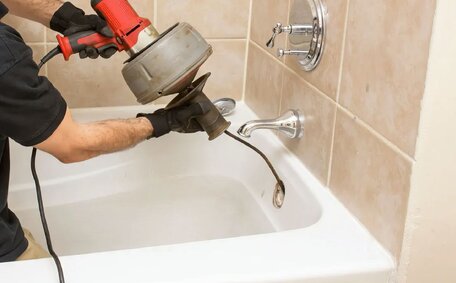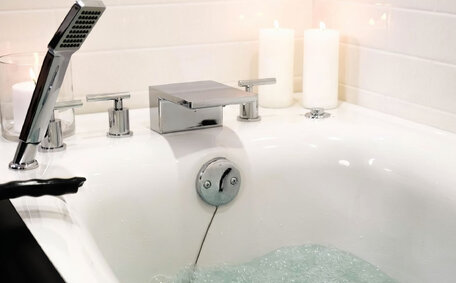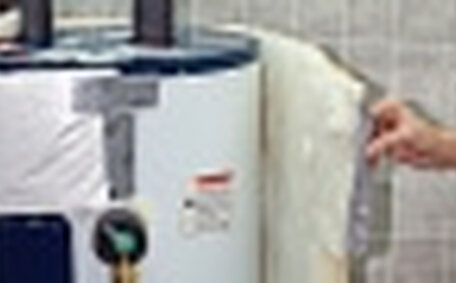Introduction to Hot Water Systems in Multi-Story Buildings
When selecting a hot water system for a multi-story building in Marrickville, Sydney, there are several key considerations to take into account. As a leading plumbing provider in the local area, Marrickville Plumbing has extensive experience helping apartment complexes and commercial buildings choose the right system for their needs.
Ensuring the system meets capacity requirements is critical.
The system must handle peak demand reliably across all units. Critical factors such as apartment count, average occupancy, and flow rate to upper levels are carefully evaluated. Reliability is paramount, as downtime from a subpar system causes significant disruption for residents.
The specific type system for hot water also depends on site conditions and objectives around efficiency and environmental impact. Limitations like insufficient roof space for solar collectors also influence the decision.
Heat pumps are popular choices in apartment blocks now due to their ability to efficiently manage your hot water system with improved technology and lower running costs. Alternatively, electric or gas systems with large storage tanks offer different trade-offs between upfront costs and operating expenses.
Marrickville Plumbing also provides guidance on system placement, individual unit metering, centralised facility regulations, and hot water billing management. Ultimately, knowing how your building’s unique requirements influence the balance of performance, cost and longevity is crucial.
Understanding Regulations and Compliance Standards
When installing hot water systems in an apartment building, it is crucial to adhere to regulations and standards to ensure safety, reliability and efficiency. The key compliance standard is AS/NZS 5601.1:2013, which provides specifications for gas, liquid and solid fuel burning systems.
Certified plumbers are required to adhere to standard clauses concerning materials, design, installation, commissioning, and servicing for your hot water system. This covers areas like flame safeguards, combustion performance, ventilation, gas pressure, isolation valves and signage. There are also requirements under the National Construction Code and local council bylaws.
Apart from gas systems, The standard also outlines compliance rules for electric, solar, and heat pump systems. It stipulates safety mechanisms, energy efficiency ratings, layout and setup guidelines tailored to different building types.
To learn more about the repercussions, neglecting these regulations when installing a large, centralised system or separate units in a multi-story building can risk fires, explosions, water contamination, Legionella bacteria as well as excessive energy consumption.
Teaming up with credible plumbers such as Marrickville Plumbing, who are well-versed in Australian Standards and best practices, ensures plumbing systems meet legal and performance requirements.
Assessing Hot Water Capacity Needs
Properly assessing the heating water capacity needs for a multi-story building is crucial to ensure adequate supply for all residents without overspending. The key factors to consider include:
- Number of apartment units and bedrooms in each
- Average occupancy per unit
- Peak usage times
- Standard flow rates to upper levels
- Total number of bathrooms, kitchens, laundries etc
- Allowance for future expansion
Collecting this data, and considering additional use from amenities such as gyms or pools, enables proper analysis of peak demand across the building. This capacity can then be compared to various system your sizes to choose the optimal one for your building.
A 100 unit building might need a pump system such as an 850 L gas or electric storage model, or a bank of 250 L pump hot water units. For greater accuracy, detailed calculations that consider appliance types, flow restrictions, pressure, and other variables are performed.
It’s also recommended to monitor or centralise metering of actual usage over time, especially after a new hot water system installation. Keep in mind that excess capacity translates to wasted resources and a larger energy footprint; the aim is to align supply precisely with demand.
Comparing Storage Tank and On-Demand System Options
Storage tank and on-demand systems take quite different approaches to delivering hot water in apartment buildings.
Storage heaters, which operate under mains pressure, have an insulated tank to maintain a heated water reserve.
Continuous flow, or 'instantaneous’ systems, heat water on-the-fly as it moves through a heat exchanger or heating element. They are energy-efficient as they heat water on demand, but may offer a limited buffer during simultaneous usage. Flow hot water rates to upper floors may be impacted if demand outweighs heating capacity.
Tankless systems allow for unit inside space optimisation as no storage is required. And modern gas-fired models can supply a constant stream at pre-set temperatures. However, electric on-demand units often necessitate substantial power inputs, potentially requiring upgrades to existing infrastructure.
We would assess the pros and cons of each system type based on the building layout, number of units, and energy source available. Often a hybrid approach, with smaller electric on-demand units complementing a large gas storage tank, balances peak loads cost effectively.
Types of Fuel Sources: Gas, Electric, Solar
There are three main types of fuel sources used for hot water systems in multi-story buildings: gas, electric and solar power.
Gas Systems
Natural gas hot water systems can use gas burners to efficiently heat water, whether in a storage tank or instantaneously in a tankless model.
Gas heating provides efficient water warming with lower operating costs than electric heating. Pump hot water storage tanks occupy more space but provide reserved capacity during high demand. Tankless models save room but may be inadequate if the heating rate is outpaced.
Electric Systems
Electric systems typically use electric heating elements to warm water. Storage electric systems offer better support for peak loads and are generally less expensive to install than gas equivalents. Storage electric systems offer better support for peak loads and are generally less expensive to install than gas equivalents. On-demand electric units deliver an endless hot water supply but require substantial electrical power.
Solar Systems
Solar hot water systems utilise the sun’s free thermal energy. However, adequate solar exposure and roof space is needed for collector panels.
These systems also come with a higher initial investment.
When advising multi-story buildings, we carefully weigh up the pros, cons and installation considerations for each fuel type against the site’s conditions and hot water requirements.
Metering and Billing Systems for Apartments
When installing hot water systems in multi-unit apartment blocks, determining how usage will be metered and billed to residents is an important consideration.
The two primary approaches, Master metering and Individual metering, differ in both installation and the costs incurred by residents.
Master metering involves a single utility metre measuring total hot water usage for the building. Residents are then billed an evenly divided share of the energy bills or an amount based on unit size. Although initial setup costs are significant, this approach may disadvantage residents who use less hot water.
Individual metering allows fairer billing by installing a metre on the hot water supply to each apartment.
Residents pay based on water meter readings, reflecting their actual hot water consumption. Smart metres can even allow remote monitoring and leak alerts. However, purchase and installation costs are higher for the body corporate.
We provide expert advice on selecting and installing the appropriate metering systems to achieve fair billing. Particularly, smart meters spur enhanced consumer awareness and encourage water efficiency.
Embracing Sustainability with Eco-Friendly Systems
There is a strong focus now on environmentally sustainable practises within multi-story buildings. Choosing an energy efficient hot water system with lower emissions aligns with this goal while reducing costs.
Heat pump water heater systems, as an eco-friendly choice, utilise renewable electricity to extract ambient heat for water warming. They offer efficiency up to four times greater than traditional electric water heaters.
Solar hot water systems use heat from the sun to warm water in roof-mounted collectors.
Using heat cogeneration, which recycles a building’s waste heat for water warming, is another sustainable strategy. Alternatively, individual heat pump units can recycle air conditioning exhaust heat for water heating in each apartment.
For multi-story buildings, we evaluate aspects such as renewable system options, electricity consumption, emissions, and operational costs to advise the most sustainable hot water solutions.






